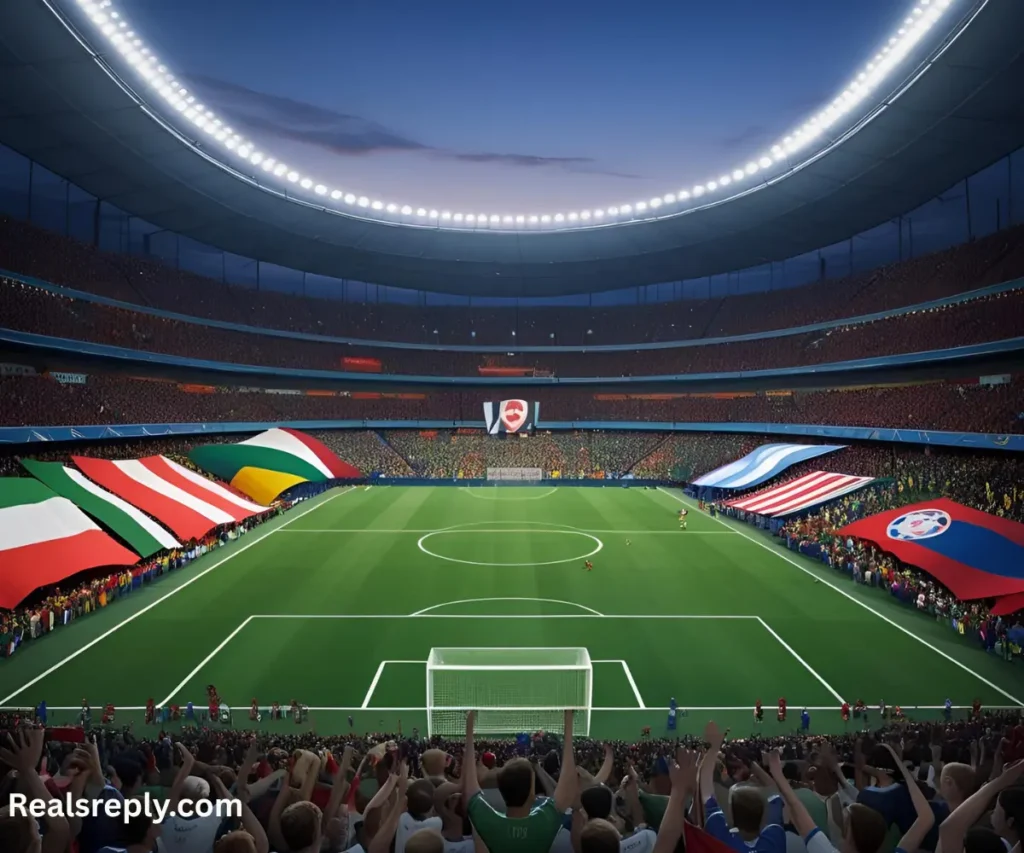On July 9, 2006, the world watched in shock as Zinedine Zidane, a soccer legend, headbutted Marco Materazzi during the FIFA World Cup final.
This moment left fans asking, what did Materazzi say to Zidane to spark such a reaction?
The incident, now infamous, overshadowed France’s loss to Italy and became a topic of heated debate.
Was it a personal insult? A tactical provocation? This blog post dives into the mystery, exploring the events, the words exchanged, and the lessons we can learn from this dramatic clash.
Whether you’re a soccer fan or curious about human emotions under pressure, let’s uncover the truth behind this unforgettable moment.
The 2006 World Cup Final: Setting the Scene

The 2006 World Cup final was a high-stakes match between France and Italy.
Zinedine Zidane, playing his last professional game, was under immense pressure.
Tensions were high, and both teams fought fiercely.
Late in the game, Zidane and Materazzi had a heated exchange. Suddenly, Zidane turned and headbutted Materazzi, earning a red card.
Fans were stunned, asking, what did Materazzi say to Zidane? The moment shifted the game’s momentum, and Italy won the title.
This scenario shows how words can escalate emotions in intense situations.
For example, in sports, players might use trash talk to unsettle opponents, but crossing personal lines can lead to unexpected consequences, as seen here.
What Did Materazzi Actually Say?
After years of speculation, Marco Materazzi admitted he insulted Zidane’s sister during their exchange.
He claimed it wasn’t about Zidane’s mother, as some rumored, but a personal jab in response to Zidane’s taunting. Materazzi said, “I prefer the
whore that is your sister,” which provoked Zidane’s reaction.
This revelation shocked fans, highlighting how personal insults can trigger impulsive actions.
In real life, imagine a workplace argument where someone insults a colleague’s family—escalation is likely.
Instead of saying, “Your work is terrible,” which attacks performance, avoid personal jabs like, “Your family must be ashamed.”
The latter crosses a line, much like Materazzi’s words did.
Why Did Zidane React So Strongly?
Zidane’s headbutt wasn’t just about the words; it was about the moment.
As a captain and veteran, he carried immense pressure. Materazzi’s insult hit a nerve, possibly because it targeted family, a deeply personal boundary.
Emotions like anger can override logic, especially in high-stress settings.
For instance, in a heated family argument, someone might lash out if their loved ones are insulted.
Zidane later said he regretted the act but not defending his family’s honor.
When angry, it’s better to say, “I need a moment to cool off,” rather than reacting physically or with harsh words.
Zidane’s reaction reminds us that emotional control is key in tense situations.
The Role of Provocation in Sports
Provocation, or “sledging,” is common in sports. Players use words to distract opponents, but there’s a line between strategy and cruelty.
Materazzi’s comment was a deliberate attempt to unsettle Zidane, and it worked. In soccer, players might say, “You’re too slow,” to rattle someone, which is tactical.
But personal attacks, like Materazzi’s, risk severe consequences, as seen with Zidane’s red card. In everyday life, think of a school bully taunting a peer’s appearance.
Instead of saying, “You’re worthless,” which cuts deep, a better approach is addressing behavior, like, “Let’s focus on the game.”
Understanding what did Materazzi say to Zidane shows how provocation can backfire or succeed, depending on the intent.
Cultural Context of the Incident
Zidane, of Algerian descent, and Materazzi, an Italian, came from different cultural backgrounds where family honor holds varying weight. In some cultures, insulting family is a grave offense, which may explain Zidane’s reaction.
For example, in a community where respect for elders is paramount, a comment like Materazzi’s could spark outrage. This incident teaches us to consider cultural sensitivities.
In a diverse workplace, avoid saying, “Your traditions are weird,” which can offend. Instead, ask, “Can you share more about your culture?” Knowing what did Materazzi say to Zidane highlights the importance of respecting personal and cultural boundaries to avoid conflict.
Lessons Learned from the Incident
The Zidane-Materazzi clash offers valuable lessons.
First, words have power—choose them wisely. Second, emotional control prevents regretful actions. Zidane’s headbutt cost his team, showing how one moment can change outcomes.
In real life, imagine a parent yelling at a child in anger. Instead of saying, “You’re a failure,” try, “Let’s work on this together.”
Finally, provocation doesn’t justify violence. Materazzi’s words were wrong, but Zidane’s response escalated the issue.
By understanding what did Materazzi say to Zidane, we learn to stay calm, respect boundaries, and communicate thoughtfully, whether in sports or daily life.
Conclusion
The question, what did Materazzi say to Zidane, reveals more than just words—it shows how emotions, provocation, and cultural differences can collide.
Materazzi’s insult triggered Zidane’s infamous headbutt, leaving a lasting mark on soccer history.
This moment reminds us to think before we speak and stay composed under pressure.
Whether in sports, work, or personal life, choosing words that build rather than break can prevent regretful outcomes.
Let’s learn from this 2006 World Cup moment and strive for respect and understanding in every interaction.




